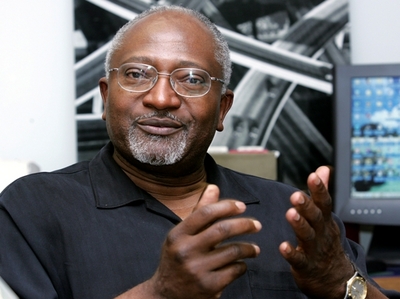Numerous studies have documented African Americans communities face a disproportionate share of environmental and health threats. It is for this simple reason the Environmental Justice Movement was born some three decades ago--a national movement born fighting environmental racism. And it is also why millions of African Americans look to the federal Environmental Protection Agency for equal environmental protection they have been denied by their state environmental agencies, many of whom have a long and sordid history of protecting polluters over protecting residents who live in industrial "sacrifice zones." The drinking water contamination cases in Dickson, Tennessee , Flint, Michigan and East Chicago, Indiana are textbook examples of what happens when African Americans wait for government to respond. Clearly, Black Lives and Black Health don't seem to matter and waiting for the government can be hazardous to your health. New Orleans' Hurricane Katrina survivors learned this lesson the hard way.
A weakened federal EPA is a recipe for disaster. Overturning environment and energy rules is a massive gift to polluters. Rolling-back or gutting environmental regulations is a roadmap for more trips to the emergency room for many Americans who live on the fenceline with polluting industries. This threat to public health is especially true for our most vulnerable population--children. The promise of jobs must not trump public health.
Zip code is a power predictor of health and vulnerability. Environmental vulnerability maps closely with race and income. Many of the nation's environmental disparities and injustices have their roots in racial segregation and discriminatory zoning and land use practices. Much of America still has the "wrong complexion for protection," placing African Americans and other people of color at elevated risks from industrial pollution, unnecessary health threats and natural and human-made disasters. African Americans get more than their fair share of the bad stuff. African Americans are 79 percent more likely than whites to live in neighborhoods where industrial pollution poses the greatest health danger. This is the case for African Americans in 19 states, compared to Hispanics in 12 states and Asians in 7states. More than 68 percent of African Americans live within 30 miles of a coal-fired power plant--the distance within which the maximum effects of the smokestack plume are expected to occur--compared with 56 percent of whites and 39 percent of Latinos who live in such proximity to a coal-fired power plant.
Even money does not insulate African American communities from elevated pollution assaults. Affluent African American households with incomes between $50,000 and $60,000 live in neighborhoods that are more polluted neighborhoods in which white households with incomes below $10,000 live. According to the 2014 report, Who's in Danger: A Demographic Analysis of Chemical Disaster Vulnerability Zones, the percentage of African Americans in the "fenceline zones" near chemical plants is 75 percent greater than for the U.S. as a whole, and the percentage of Latinos is 60 percent greater. America is still largely segregated and ironically so is pollution . More than 69.2 percent of Hispanic children, 61.3 percent of African American children, and 67.7 percent of Asian American children live in areas that exceed EPA ozone standards , compared with 50.8 percent of White children. University of Minnesota researchers found African Americans and other people of color breathe 38 percent more polluted air than whites are also exposed to 46 more nitrogen oxide than whites.
Believe it or not it's also hotter where African Americans live. More than 43 percent of African Americans live in "urban heat island ," compared to only 20 percent of whites. According to the EPA, an urban heat island is a metropolitan area that is significantly warmer than its surroundings. In large metropolitan areas, urban heat island in the city can be 1.8 to 5 degrees Fahrenheit warmer during the day than surrounding areas and as much as 22 degrees Fahrenheit warmer at night. Generally, urban heat island are hotter, more polluted and have fewer tree cover and green space. There are health risks associate with heat. Urban heat risks are also most pronounced in hyper-segregated cities in the country. Nationally, African Americans have a 5.3 percent higher prevalence of heat-related mortality than whites, and 64 percent of this disparity is traced back to disparities in prevalence of home air conditioning.
Now is not the time to relax enforcement of environmental regulations--especially when wide environmental health disparities exist in our society. These disparities are most pronounced among the most vulnerable in our society as exhibited by the wide asthma hospitalization and death rate between black and white children. African American children are three to five times more likely than White children to be hospitalized or die from asthma. Hospitalization rate for African Americans is 3 to 4 times the rate for whites; African Americans account for 13 percent of the U.S. population, but 26 percent of asthma deaths.
Climate change will further exacerbate heat and other environmental health threats to African Americans and other vulnerable populations. African Americans will bear an unequal burden from climate change-related disasters (droughts, heatwaves, flooding, hurricanes, sea level rise, etc.) because of geographic concentration (over 55 pecrent live in the South), high prevalence of concentrated poverty, uninsured households , income and wealth inequality , poor health , socioeconomic barriers , health care disparities , and food insecurity , lack of private transportation , and climate-related challenges resulting from discriminatory government policies and actions--all combined to create a perfect storm of vulnerability if and when natural and human-made disasters strike.
With these pressing challenges, polls show African Americans support clean energy, clean jobs and clean power plan--with 83 percent support setting limits on carbon pollution from coal- and gas-fired power plants. They also support building a strong grassroots, intergenerational Climate Justice Movement to confront these threats. We must resist all efforts to dismantle the EPA and our nation's environmental protection apparatus as if our lives depend upon on it--and they do.






